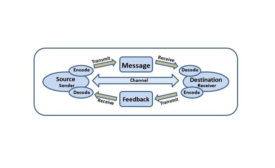Home » Keywords: » management
Items Tagged with 'management'
ARTICLES
Communication leads to engagement
Speech and language mean more than you might think
December 16, 2023
Do you know what's going on in your facility?
How to effectively assess, optimize workflow and utilize technology to improve operations
November 21, 2023
Leading Safety
Why do many safety change initiatives fail to achieve expected results?
October 18, 2023
Leading Safety
Human error: Prevention vs. tolerance | Part 2 of 2
Rethinking traditional approaches to safety management
August 18, 2023
A deep sea implosion rocks the safety world
Almost as much as “Safety is just pure waste”
July 19, 2023
Leading Safety
Ignoring or engaging in risky behavior might be a perception issue
April 27, 2023
Get our new eMagazine delivered to your inbox every month.
Stay in the know on the latest safety trends.
SUBSCRIBE TODAYCopyright ©2024. All Rights Reserved BNP Media.
Design, CMS, Hosting & Web Development :: ePublishing











